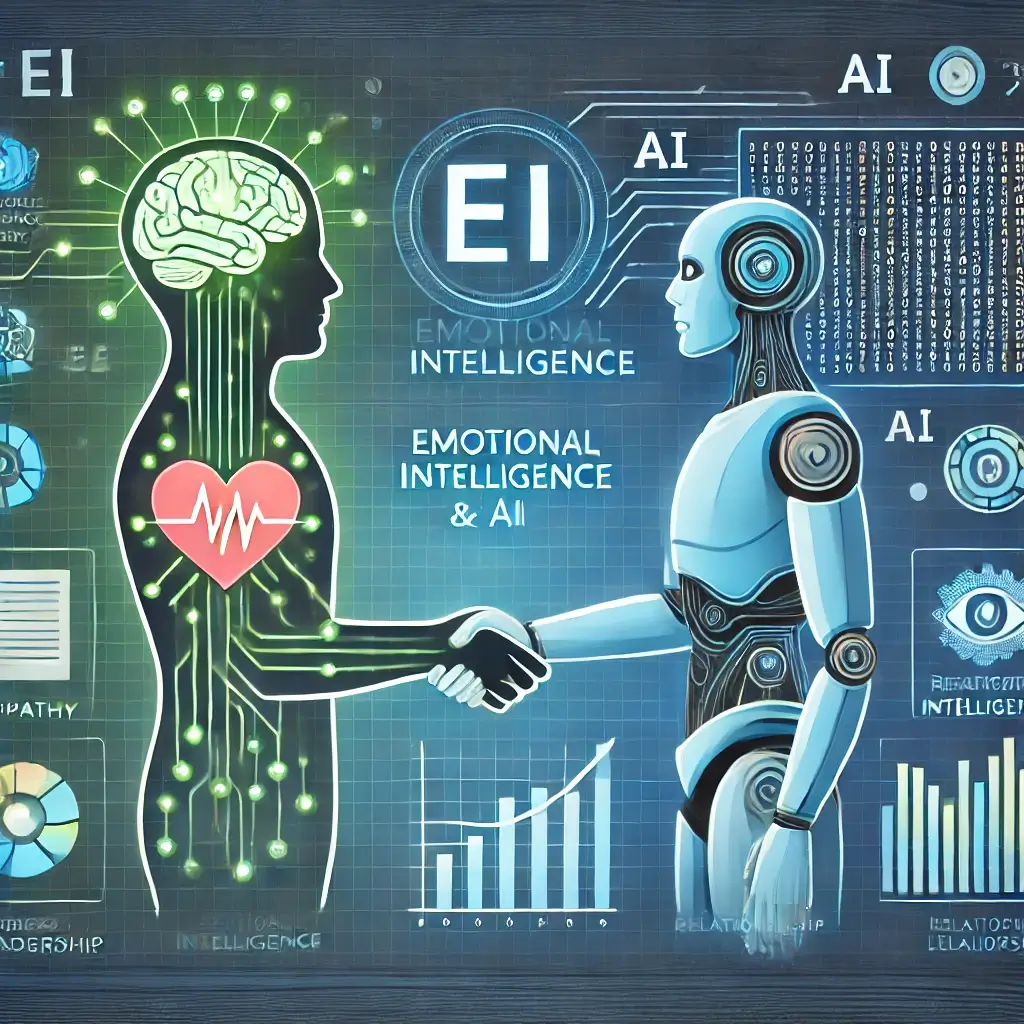Emotional Intelligence in Leadership
- Leadership is not just about:
- Giving instructions
- Meeting goals.
- It is about:
- Creating meaningful connections
- Solving challenges collaboratively
- Inspiring growth in your team
- The cornerstone of these skills? Emotional intelligence (EI).
- In this guide, we will:
- Uncover how EI empowers leaders
- Provide actionable strategies to develop this vital skill,
- Share inspiring examples from real-life leadership.
Why EI Matters More Than Ever – Emotional Intelligence in Leadership

- We are living in a time of technological change.
- Artificial intelligence (AI) is transforming the way of our:
- Work
- Communication
- Decisions Making
- AI has taken over more routine and technical tasks,
- In an AI-driven culture, EI is the differentiator between leaders:
- Those who thrive, and
- Those who struggle.
- Here’s why:
- AI can process data,
But it cannot replicate human:
- Empathy
- Compassion
- AI can analyze trends,
But it cannot make decisions that require emotional nuance.
- AI can automate tasks,
But it cannot build relationships or inspire teams.
- As AI assumes more technical responsibilities,
Human leaders must refine their EI to complement AI capabilities.
- This includes being able to:
- Understand and manage your own emotions and others.
- Extend empathy to others.
- Build strong relationships.
- Make decisions that incorporate both:
- Logic
- Emotion
- Communicate effectively.
- Inspire team member to perform well.
What is Emotional Intelligence in Leadership?
- Emotional intelligence refers to;
“The ability to understand and manage your emotions while effectively recognizing and responding to others.”
- Leaders with high EI can:
- Navigate challenges with grace
- Build strong teams
- Make better decisions
Key Components of Emotional Intelligence in Leadership
Self-Awareness
- Recognizing your emotions and their impact.
Self-Management
- Controlling emotional responses in difficult situations.
Empathy
- Understanding the emotions and perspectives of others.
Social Skills
- Practice strong interpersonal skills in building effective:
- Teams
Why Emotional Intelligence is Critical for Leaders
- Emotional intelligence drives impactful leadership by:
- Enabling connection
- Fostering trust
- Improving decision-making
- Leaders with EI:
- Recognize emotional biases.
- Make thoughtful, rational decisions.
- EI allows leaders to adapt their communication styles suit to different
- Personalities
- Situations
- With the strong inculcation of empathy leaders:
- Builds trust
- Promotes collaboration
- Creates a positive workplace culture
- Emotionally intelligent leaders manage conflicts effectively by:
- Addressing the root causes
- Fostering mutual understanding
How to Develop Emotional Intelligence in Leadership
Practice Self-Awareness
- Reflect on emotional triggers during the day.
- Keep a journal to analyze patterns in your emotions and behavior.
Build Empathy
- Listen actively without judgment.
- Practice perspective-taking.
Improve Communication Skills
- Focus on clarity.
- Avoid emotional language when addressing sensitive issues.
- Use inclusive language and encourage feedback.
Stay Calm Under Pressure
- Practice mindfulness.
- Cultivate a growth mindset to overcome stressful situations.
- Recognize stress signals.
- Address stress factors thoughtfully rather than reacting impulsively.
Get Feedback and Coaching
- Use 360-degree assessments.
- Know and address blind spots.
- Work with a mentor or leadership coach.
Conclusion: Lead with Emotional Intelligence
- Emotional intelligence is no longer optional – it is essential.
- By developing EI, leaders can:
- Navigate complex challenges
- Build meaningful relationships
- Inspire success in their teams
- Ready to elevate your leadership?








2 Comments
Quratulain Ali
December 13, 2024 at 5:10 amVery nice🥰♥️
Quratulain Ali
December 13, 2024 at 5:10 amSuprb♥️♥️